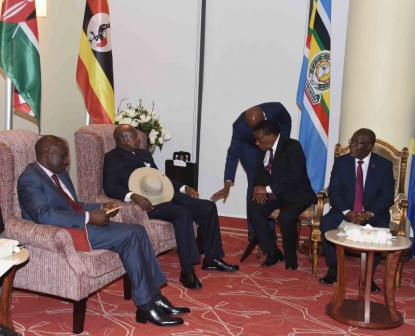
Deputy President William Ruto Thursday tried to convince Tanzanian President John Magufuli to approve a trade pact that guarantees exporters unlimited access to the European market.
If the regional trade pact is not signed before the October 1 deadline, produce entering the EU from Kenya could attract monthly taxes of at least Sh600 million.
Most affected by the elusive trade deal are thousands of vegetable, fish and flower exporters, who might have to cut prices to absorb the impact of the taxes. Kenya has also asked the Arusha-based East African Community (EAC) secretariat to request an extension of the deadline to January 1, 2017.
Mr Magufuli has been reluctant to sign the Economic Partnership Agreement (EPA).
"In the meantime, EAC will write to the EU not to punish Kenya by imposing tax on its goods," reads an official statement from the regional Heads of State meeting in Dar es Salaam.
Mr Ruto was in Dar, the Tanzanian capital, where he sought to convince his host and Burundi that failure to sign up for the EPA would hurt the region's traders.
"This will negatively affect prospective trade arrangements with other countries," Ruto said, referring to the reluctance by Tanzania and Burundi to enter the agreement.
He added that the backtracking from the pact would erode the credibility the EAC has built over the last 20 years.
Ruto argued that it would be dangerous for the region to adopt different trade regimes by failing to sign EPAs when it is easy to engage any partners as a bloc.
Uganda has committed to signing while Rwanda and Kenya have already signed.
The taxes will only affect Kenyan exports since it is the only country in the region that is not grouped among the least developed countries – which enjoy preferential treatment in international trade.
EPA is only effective if all the five regional members sign up as it was a collective negotiation, which the two dissenting countries now threaten to abandon, citing different reasons.
Tanzania has claimed the EPA does not offer any benefits, while Burundi is protesting a decision by EU to cut foreign aid.